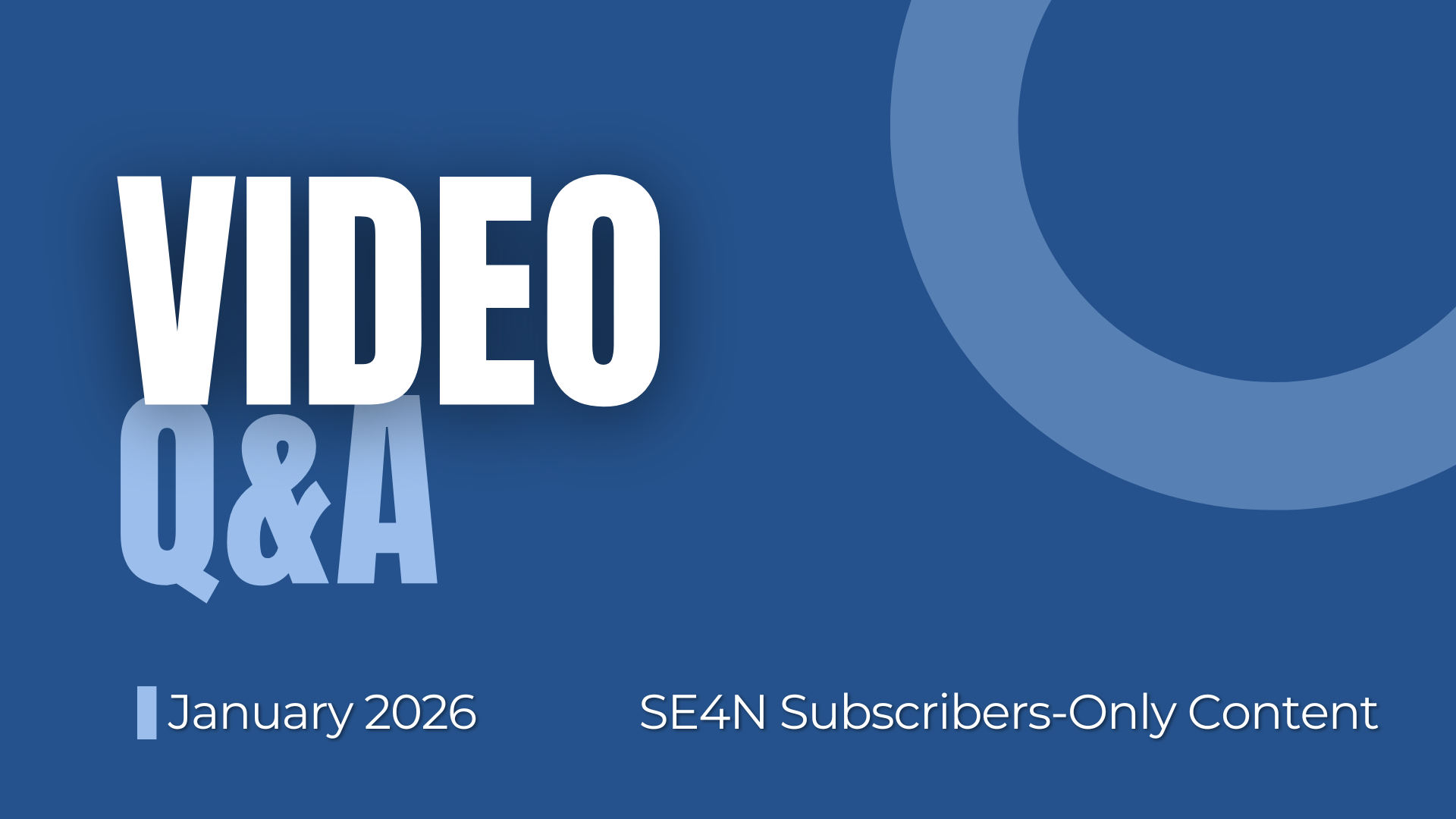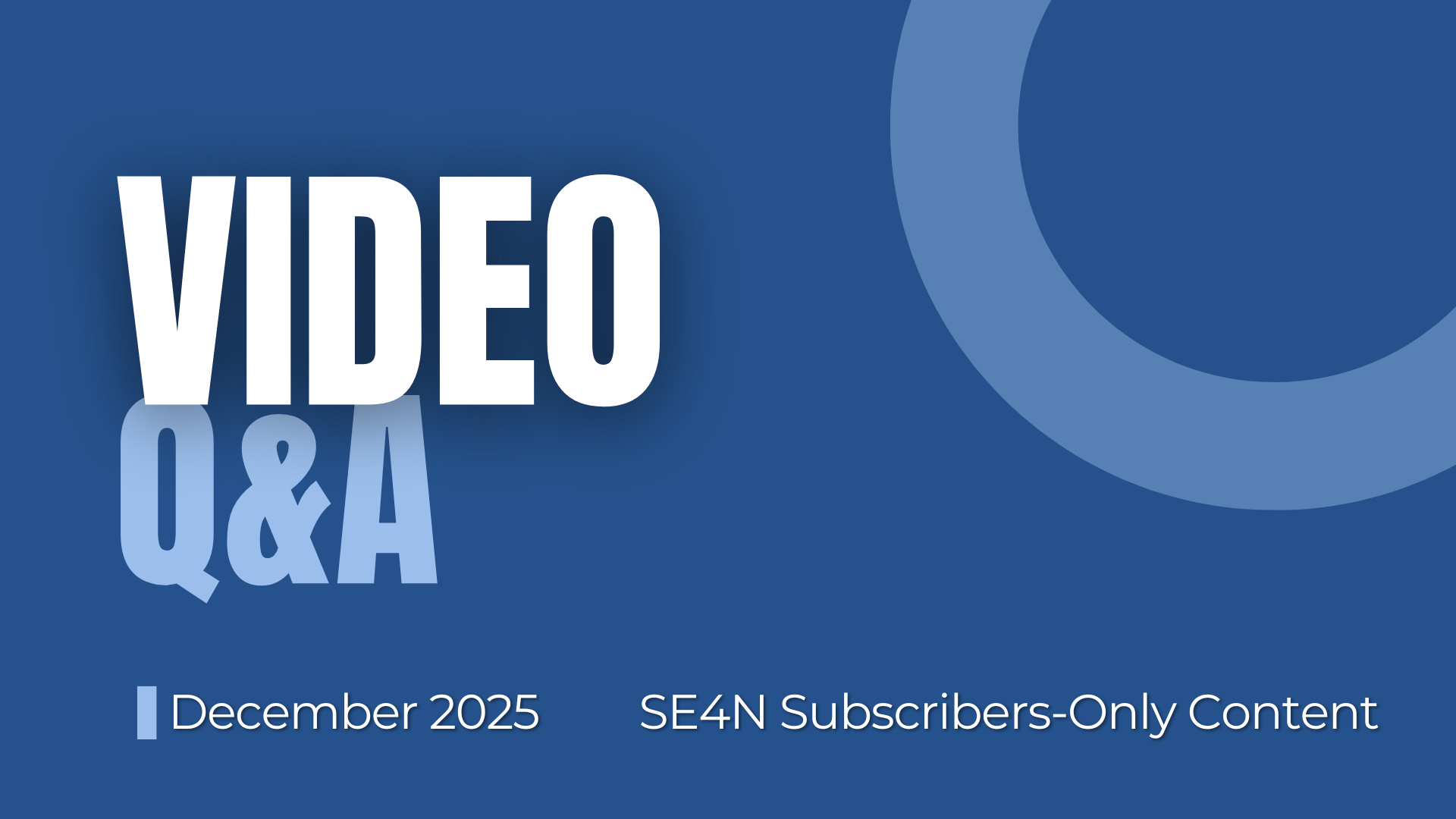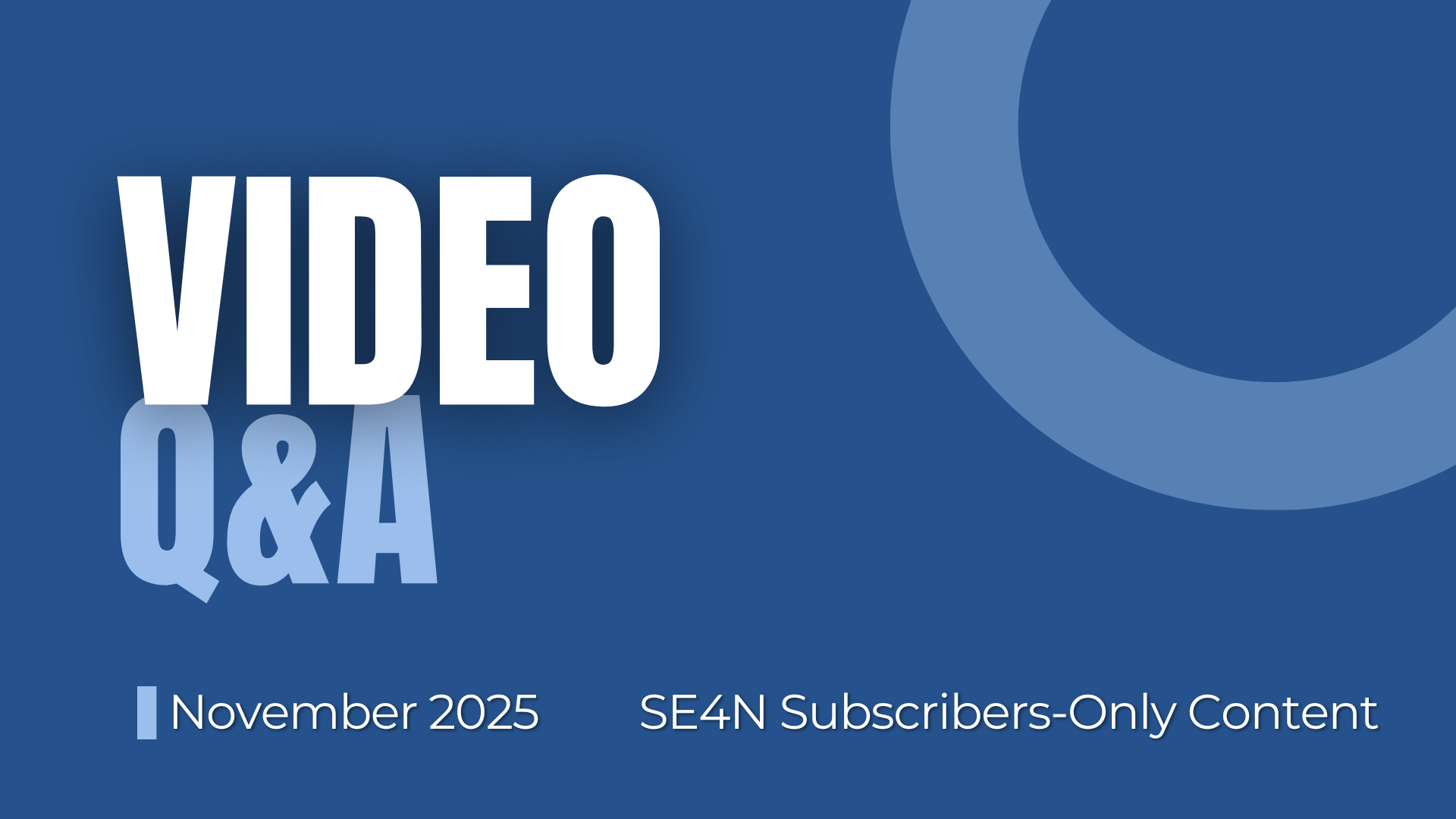
Enhancing Nonprofit Sustainability Through Fiscal, Financial, Legal, and Governance Education.
Sustainability Education 4 Nonprofits (SE4N) is an education website with 100% human-created content, written by experienced nonprofit professionals.
TRENDING ISSUE, FEBRUARY 2026:
Sign Up to Download SE4N's
Nonprofit Financial and Legal Compliance Basics Checklist
SE4N's A. Michael Gellman (CPA, CGMA) and Benjamin Takis (JD) jointly authored this detailed checklist to cover the essential basics of financial and legal compliance that should be part of any nonprofit organization’s sustainability planning and risk management process, including Conflicts of Interest, Internal Controls and Risk Assessment, Employment and Human Resources, Financial Reporting and Audits, Government Grants, Governance and Corporate Records, and other Key Risk Management Areas.
AFTER SIGNING UP, PLEASE CHECK YOUR EMAIL FOR A CONFIRMATION LINK.
Thank You!
PLEASE CHECK YOUR INBOX TO CONFIRM YOUR SIGN-UP AND DOWNLOAD THE CHECKLIST.
IF YOU DO NOT SEE THE CONFIRMATION EMAIL, MAKE SURE TO LOOK IN YOUR SPAM FOLDER.
Feel free to contact us if there are any issues.
It is relatively common knowledge that dissolving a nonprofit organization is one of the most difficult decisions a Board of Directors may have to make. However, many people underestimate the careful planning, attention to detail, and commitment that is required to properly shut down and dissolve an organization. This process should start well before the filing of “Articles of Dissolution” and often continues in a post-dissolution “wind-up” period that can last for months or years.
The markers for tracking and assessing a nonprofit organization’s financial health are not a mystery. The key elements of financial health (operating reserves, funding, and operational expenses) are generally easy to identify and understand. You just need a willingness to keep your eyes open and a commitment to pause and make an honest assessment of a financial picture that has most likely been changing.
I often receive inquiries from entrepreneurs who are looking to add a philanthropic component to an existing for-profit business, such as by forming a nonprofit as a charitable arm or subsidiary of their business or starting a corporate foundation. These ideas are usually well-intentioned. However, mixing business and charitable activities too closely can make IRS approval of 501(c)(3) status an uphill battle.
Difficult budget issues can often arise quickly and unexpectedly. To maintain a high level of trust with your nonprofit organization’s Board and remain transparent, collaborative, and inclusive, be sure to communicate in a timely and thoughtful manner.
Most Recent Posts
This Board Confidentiality Policy template is intended to help your organization communicate to the Board of Directors the importance of non-disclosure and proper use of a nonprofit organization’s sensitive information. This template includes basic essential provisions such as the definition of “Confidential Information” (with common exceptions), and provisions for the use, safeguarding, and return of documents containing Confidential Information.
Ben and Mike answer questions from subscribers about the pros and cons of receiving a modified audit opinion vs. delaying completion of the audit, whether the Board of a membership organization owe fiduciary duties to the members or to the mission, the use of non-disparagement language in severance agreements, and how better understand an organization's finances.
The Treasury Regulations and Form 1099 instructions provide that the 1099 reporting requirements apply to payments made “during the calendar year.” This guidance strongly suggests that nonprofits should issue Forms 1099 to their vendors and service providers based on when the payments were actually made (cash basis), even if the organizations otherwise use accrual basis for tax and accounting purposes.
These donor acknowledgment letter templates are intended for newly formed organizations that receive donations prior to getting approval of 501(c)(3) status, including an initial acknowledgment with an explanation of the organization’s pending status, and follow-up letters updating the donor once the organization’s tax-exempt status is official. The included sample language is intended to generally satisfy basic IRS requirements for the most common donation scenarios, including cash contributions, non-cash contributions, as well as cash and non-cash gifts that are treated as quid pro quo contributions.
Ben and Mike answer questions from subscribers about documenting Executive Director performance in committee minutes, whether tax-exempt status can be transferred to another organization, addressing audit findings related to handling of restricted funds, how new nonprofits should fill out Form W-9, and whether new nonprofits should file a Form 990 for the first short tax year.
This template provides a framework for drafting unanimous written consent resolutions in lieu of a Board of Directors meeting. This template is intended for situations in which Board action on a matter is necessary, and taking action through unanimous written approval would be more timely, practical, and/or feasible than waiting until the Board meeting is convened.
Ben and Mike answer questions from subscribers about best practices in structuring and approving executive bonuses, updating cost allocation methods and the importance of time sheets, cash management for organizations with healthy operating reserves, and managing the costs of insurance.
Nonprofit organizations rely heavily on their finance department staff. Their services are critical to day-to-day operations and essential to safeguarding and stewarding the allocation of financial assets to meet the mission of the organization. Investing in improving and increasing finance department staff skills, capacity, and professional development are actions that “speak louder than words,” and will improve operations and performance while demonstrating a culture of staff appreciation.




![TEMPLATE: Board Confidentiality Policy [SUBSCRIBERS-ONLY]](https://images.squarespace-cdn.com/content/v1/5e6ccadfb4659c1d51df14d5/713da080-1e28-47fc-be0a-e496446e101f/key-3348307_1920.jpg)


![TEMPLATE: Donor Acknowledgement Letters for Newly Formed Organizations [SUBSCRIBERS-ONLY]](https://images.squarespace-cdn.com/content/v1/5e6ccadfb4659c1d51df14d5/e0214792-50d4-4a57-8986-c23010a18b6c/mediamodifier-R35zUpA9Mbw-unsplash.jpg)

![TEMPLATE: Unanimous Consent Resolution of Nonprofit Board [SUBSCRIBERS-ONLY]](https://images.squarespace-cdn.com/content/v1/5e6ccadfb4659c1d51df14d5/bb6388c1-e38c-4fef-a5f3-48bb76a6a5a7/pexels-eva-bronzini-8058548.jpg)

